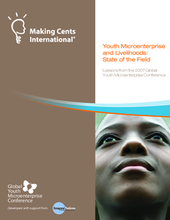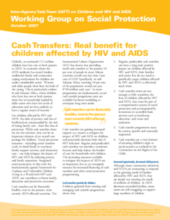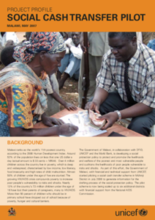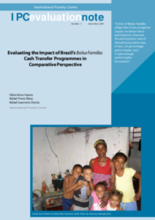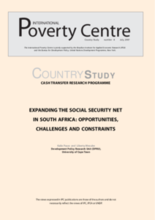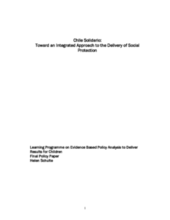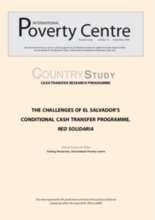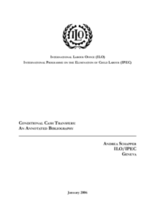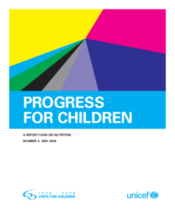Displaying 221 - 230 of 271
A report from the first-ever Global Youth Microenterprise Conference in 2007. This publication provides insights into the challenges facing youth livelihood development and its benefits for young people and communities.
A 4-page advocacy document outlining the potential benefit of cash transfers in the context of children and AIDS.
Brief overview of a project designed to give monetary aid to poor families. Program seeks to reduce poverty while promoting health and education.
Evaluates targeting and human capital impacts of Brazil's Bolsa Familia Program in comparison with Mexico's Oportunidades, and Chile's Chile Solidario.
Investigates the AIDS mitigation impacts of several large social cash transfer programmes in Africa. Emphasis on investigating non-specific targeting (of poor families) versus targeting specific to households affected by AIDS.
Examines constraints to expansion of the social welfare net in South Africa. Cites substitution taking place within the social budget since education and health expenditures have already declined in favour of increased welfare transfer expenditures.
Examination of Chile Solidario social protection programme which shows that the focus of policy makers and researchers should be on integration of cash transfers within broader social protection policies.
Provides analysis of the historical background and current structure of El Salvador's conditional cash transfer programme with attention to family integration
This document contains a bibliography global conditional cash transfer documents.
Evaluates global improvements in nutrition as progress towards achieving the Millenium Development Goals (MDGs). Suggests that the MDGs are attainable only with re-prioritization of efforts to reduce child undernutrition.

